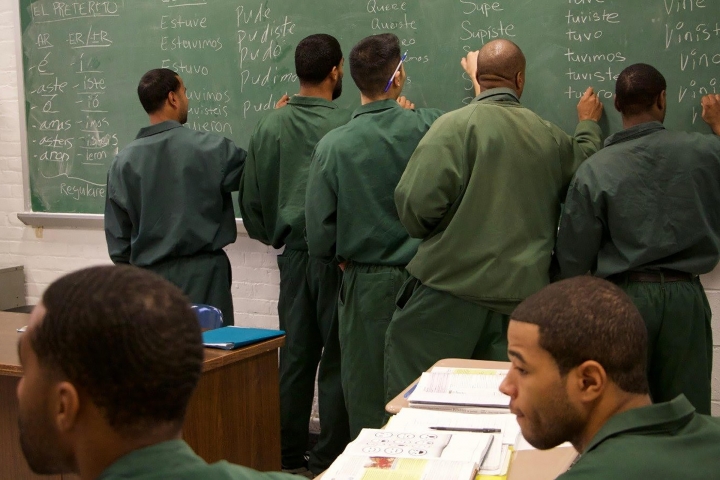
What makes a good documentary? And why watch a documentary in the first place? By my own measure, if I can come out of watching one feeling a mixture of touched and hopeful, yet hopelessly enraged, I’d consider it pretty successful. Lynn Novick’s PBS documentary series “College Behind Bars” (produced by the legendary Ken Burns) is one of the few I’ve seen that accomplishes all of them.
Through four one-hour episodes, Novick gives viewers a look into the Bard Prison Initiative, a program run by Bard College in a few prisons in New York state that allows a select few inmates those institutions to pursue associates and/or Bachelors degrees, identical to those given to students at Bard’s main campus in Annandale-on-Hudson, New York. Through interviews with several of the students enrolled in the BPI program as well as its administrators and other officials, Novick fully captures the sanctuary that the program provides amid the chaos of the prison yards, as well as the efforts made to disrupt and prevent the spread of those sanctuaries.
Much has been written, unfortunately, for decades now, about the disgraces of our civil justice system (i.e. Michelle Alexander’s excellent “The New Jim Crow”), a conversation that is intimately tied into the failings of the American prison system. While not necessarily unique on a global scale, yet repulsively backwards for a “developed” country, the cruelly punitive streak of our country’s prison system is a point reiterated by many of the interviewed students. They emphasize how while the idea of incarceration involves an obvious denial of liberty, the prisons they live in add insult to injury in a variety of dehumanizing ways, one of which is the constant artificial disruptions such as mandatory headcounts that make pursuing any form of education that much more difficult.
Novick also makes the audience look inward, and truly examine where this punitive streak derives from. One of the more surprising revelations is that programs such as Bard are nearly entirely privately funded. Why not publicly? She shows evidence of a (quite bipartisan, mind you) concerted effort by politicians to whip up public resentment against those “evil felons” and deny them any sort of benefit while they are incarcerated. Who cares if that money is being spent instead to lock more people up in the first place (perhaps to do hard labor) and harass minorities? It’s not hard to blame the students when they rightly ridicule the idea that the time they serve is meant for “rehabilitation.”
Another common thread that runs through all the interviews with the students, professors and administrators of the BPI program is just how beneficial it is to every single person involved. I’d be surprised if even the most ardent supporter of extra-punitive punishment would not waver a bit on their views after watching “College Behind Bars,” and the best outcome of the series would be more public support for programs like BPI that let the multitudes of incarcerated people in the country gain an opportunity for a better life.

